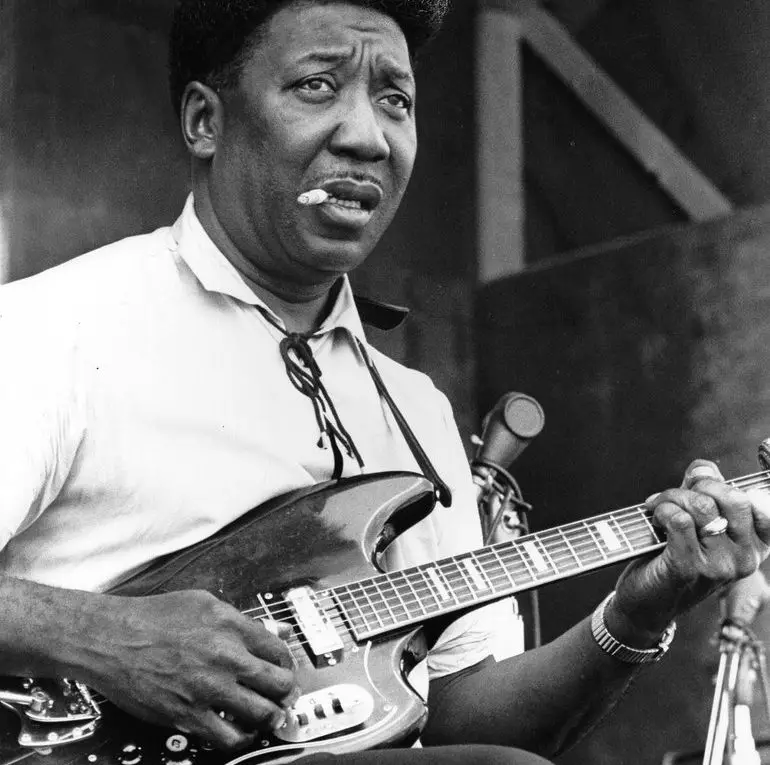Muddy Waters Songs Ranked
McKinley Morganfield (April 4, 1913 – April 30, 1983), known professionally as Muddy Waters, was an American blues singer-songwriter and musician who is often cited as the “father of modern Chicago blues”, and an important figure on the post-war blues scene. His style of playing has been described as “raining down Delta beatitude”. Muddy Waters grew up on Stovall Plantation near Clarksdale, Mississippi, and by age 17 was playing the guitar and the harmonica, emulating the local blues artists Son House and Robert Johnson. He was recorded in Mississippi by Alan Lomax for the Library of Congress in 1941. In 1943, he moved to Chicago to become a full-time professional musician. In 1946, he recorded his first records for Columbia Records and then for Aristocrat Records, a newly formed label run by the brothers Leonard and Phil Chess. In the early 1950s, Muddy Waters and his band—Little Walter Jacobs on harmonica, Jimmy Rogers on guitar, Elga Edmonds (also known as Elgin Evans) on drums, and Otis Spann on piano—recorded several blues classics, some with the bassist and songwriter Willie Dixon. These songs included “Hoochie Coochie Man”, “I Just Want to Make Love to You” and “I’m Ready”. In 1958, he traveled to England, laying the foundations of the resurgence of interest in the blues there. His performance at the Newport Jazz Festival in 1960 was recorded and released as his first live album, At Newport 1960. Muddy Waters’ music has influenced various American music genres, including rock and roll and rock music. Here are all Muddy Waters songs ranked.
Relive the music of the “Father of Modern Chicago Blues”. Click below and listen to the true Blues songs.
20. Streamline Woman (You’re Gonna Miss Me When I’m Gone, 2008)
“Muddy Waters may make music that gets the audience up on their feet, but the rather same-samey nature of this particular set of tunes did not get my mojo working.”
19. Soon Forgotten (Soon Forgotten, 2014)
“Muddy’s vocals are smooth and easy, bright and clear, standing just in front of instrumentation that’s designed with due consideration to move the music along, without challenging the conception. This is one of the few releases of which I must confess possesses no balance … and by that I mean that the piece stands complete in its own right, existing as a whole, and not the sum of its parts.”
18. Please Baby Don’t Go (Please Baby Don’t Go, 1953)
“When we were growing up, way back in the 60’s of the last century…..We, and the Beatles, and the Stones, and John Mayall and a generation of English were listening to THIS MUSIC. I am not old enough to have gone to Eel Pie Island in its hey day. When English lads and lassies wanted to hear authentic American blues. But it all started here. Muddy Waters, and all those around his time.If you want to know the origins of the influence on American music on the rest of the world. Start here.”
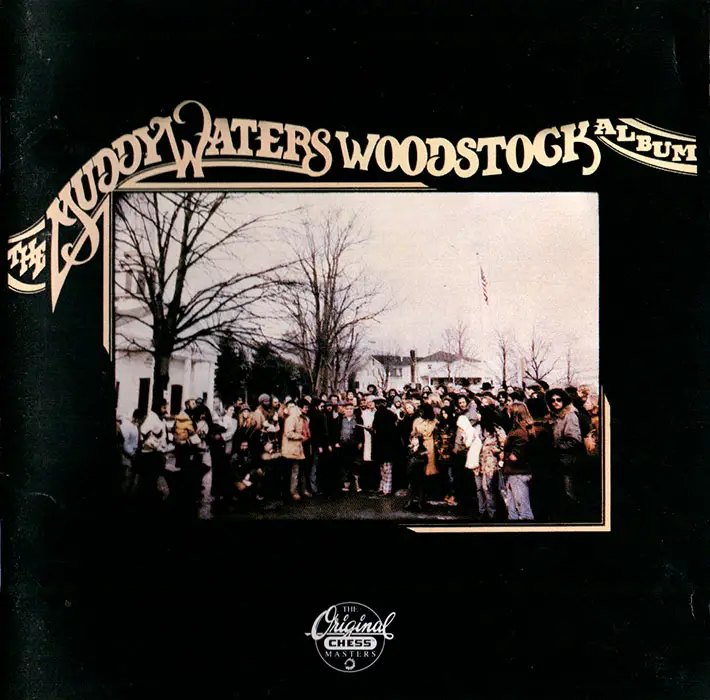
17. Champagne & Reefer (King Bee, 1981)
“Great blues album, mainly leftovers from Hard Again, but this is still full of fantastic songs and a great band too boot. Surprisingly this also very well arranged, sounding like a complete album, not a collection of material that didn’t make Hard Again. BTW if you ever get the chance, listen to Clouds in My Heart, it’s a bonus track on my version and it’s one of the best pieces of blues music I’ve ever heard.”
See more: Muddy Waters Albums Ranked
16. You Can’t Lose What You Ain’t Never Had (The Real Folk Blues, 1964)
“You Can’t Lose What You Ain’t Never Had” is not far short of the A-side’s quality, a slow to midtempo blues with fine slide guitar and piano, the rhythm section also doing sterling work, and an excellent slide guitar break.”
15. You Shook Me (You Shook Me, 1963)
“The performance is slow to midtempo with a swaying arrangement, Hooker’s ringing guitar, tinkling piano from Leake, conspicuous drums and Walker’s organ making its presence felt, as Muddy accuses his woman of messing up his happy home because she moves him just like a hurricane, leaving him pondering what his wife and child are going to do when he leaves them for this fine new woman.”
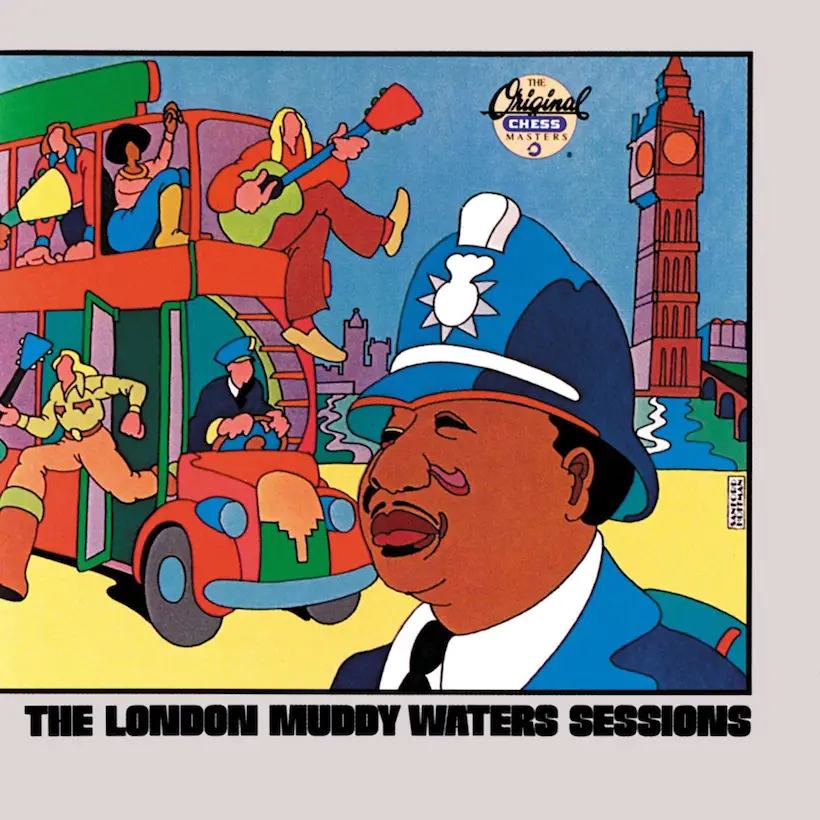
14. I Live the Life I Love (The Anthology (1947-1972), 2001)
“This is really relaxing and nice to have on in the background while you’re getting on with life, but when I try to listen to it actively, I find myself trying to seek out anything with the power of some of his live recordings. And – aside from the live track I already own – there isn’t anything.”
13. Long Distance Call (Long Distance Call, 1951)
“Muddy Waters was part of the second big wave of migration from the Mississippi Delta to Chicago. His music is not slick and uptown; it’s down-home country blues that got zapped by electricity and turned into something downright spooky.”
12. My Babe (My Babe, 1958)
“Possibly one of the most underrated albums of all time, even by the artist. Blues meets psych & the result is greater than the sum of it’s parts. Don’t listen to the purist nay sayers check this gem out.”
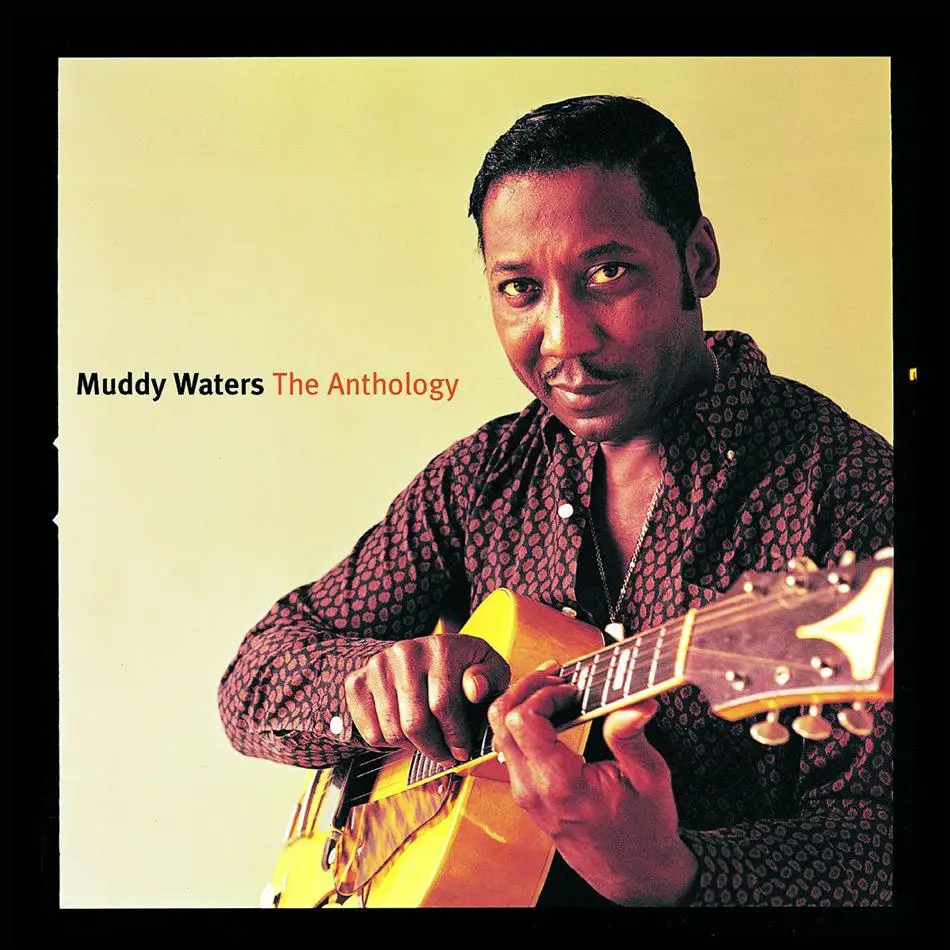
11. I Can’t Be Satisfied (I Can’t Be Satisfied, 2012)
“This is an excellent 4 CD compilation of Muddy Waters’ best tracks. Most abundant are the original sessions rather than the 70’s versions. All the classics and hits are here, making this a good buy for anyone interested in getting into Chicago Blues, although fans would be better off with The Chess Box.”
10. Blow Wind Blow (Blow Wind Blow, 1953)
“Fuzzy guitars are added here to make Muddy’s blues more attractive to a white audience, according to the music historians. And it works wonderfully.”
9. I Just Want to Make Love to You (Just Make Love to Me, 1954)
“Muddy Waters didn’t invent the blues, but he did more than anyone else to popularize them beyond the American South. Employing inventive slide and start/stop techniques, Waters forged the Chicago blues sound. He is most often associated with his lumbering, ultra-masculine performances of Willie Dixon songs like “I Just Want to Make Love to You”
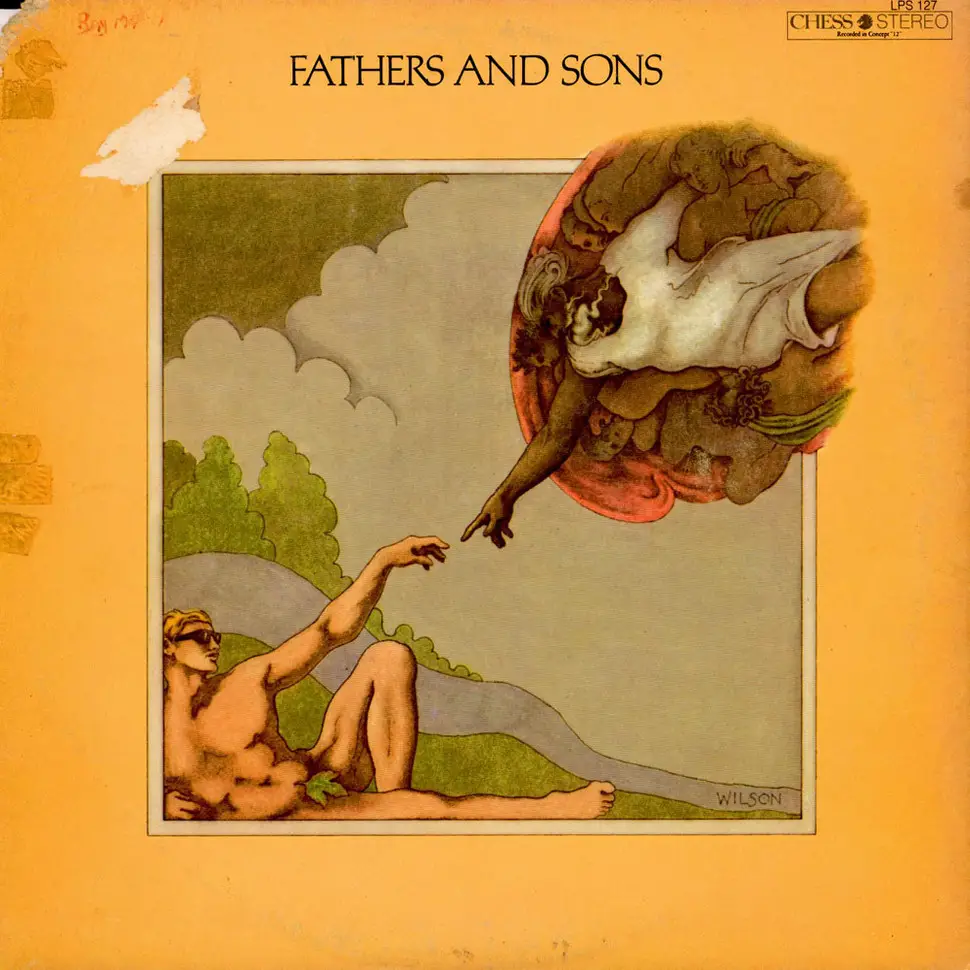
8. Down South Blues (More Real Folk Blues, 1967)
“Just a sublime blues set from a master of the genre , Muddy was a incredible blues singer 1st and foremost i feel and thats what comes across strongly here .”
7. I’ve Got My Mojo Working (Got My Mojo Working, 1957)
“The frantic, uptempo score of Muddy’s version features Cotton’s wailing harmonica with the guitars trading runs and Francis Clay’s drums all over the performance, Cotton’s harp solo only adding to the majesty of the record, Muddy delivering a powerful, evocative vocal as he invokes hoodoo to try and win his woman”
See more: Buddy Guy Albums Ranked
6. Rock Me (Rock Me, 1956)
“This album is gorgeous. Ethereal, terrestrial, with empty space and organic instrumentation. One of the most tactile experiences you can have just listening to a record. If Sam Beam could ever figure out how to use empty space the way Muddy Waters does here, he’d be the next everything.”
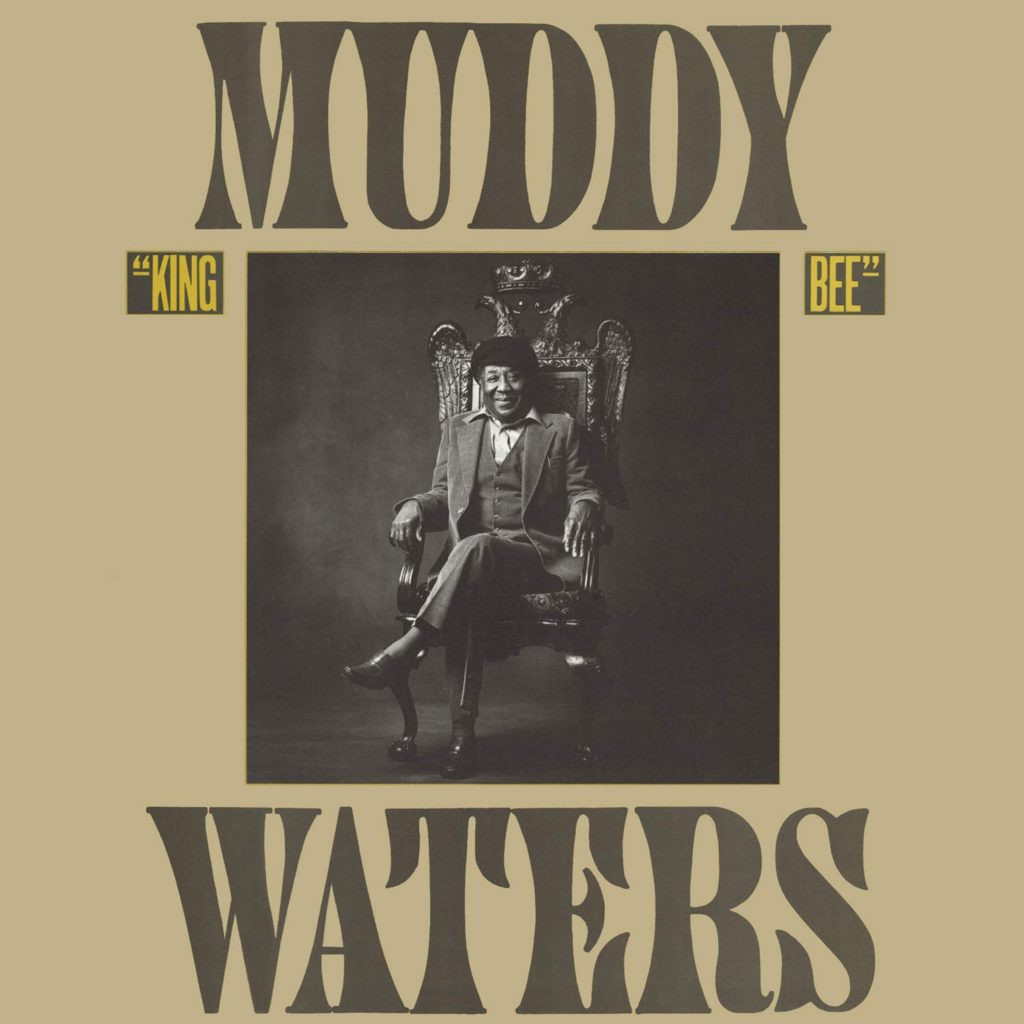
5. I’m a Man (Manish Boy, 1955)
“The song is a variant of Bo Diddley’s stellar “I’m a Man”, which record I have also reviewed on my 1955 list. Muddy’s version cedes absolutely nothing in quality to the glorious parent.”
4. Rollin’ Stone (Rollin’ Stone, 1983)
“It goes without saying this is an incredible set diehards will not be able to live without. But I’ll go ahead and recommend this to the complete newbies. I mean, what is the purpose of buying an “introductory” collection for marginally less when you’re just going to turn around and upgrade to this guy anyway. Isn’t that a waste of time, money, and the earth’s natural recourses? Why not just get your head blown off from the start? Man, I wish a set of this nature was out when I got in Muddy. “
3. Forty Days and Forty Nights (Fathers and Sons, 1969)
“Thank you to the lovely Blues busker who sang and played this for me on request on his battered old guitar in the market of my hometown. You’ve made my day complete. This was the first song by Muddy which was introduced to me. I haven’t stopped listening to him since.”
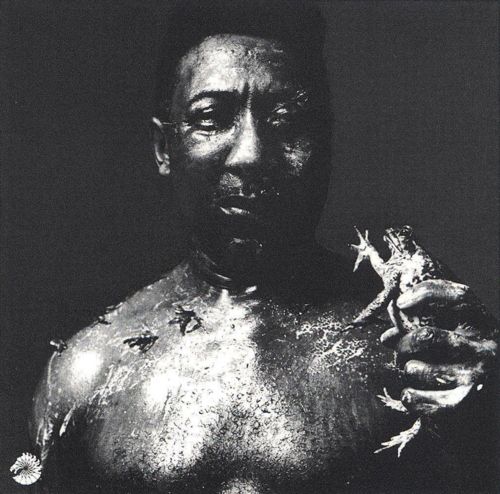
2. I’m Your Hoochie Coochie Man (Hoochie Coochie Man, 1971)
“Muddy Water’s and the band are working a small Montreal club. The music and song selection is terrific. The sound is a little off-balance, with vocals overpowering and guitar slightly in the background. It is always a delight to hear Muddy in his element.”
1. Mannish Boy (Manish Boy, 1955)
“Don’t know if you’re familiar, so, check out “Fathers and Sons” double album with Muddy, Paul Butterfield, Otis Spann, Duck Dunn, et al. Also “Muddy Waters Woodstock Album” with Butterfield, Pinetop Perkins, Levon Helm, Garth Hudson, Bob Margolin.”

